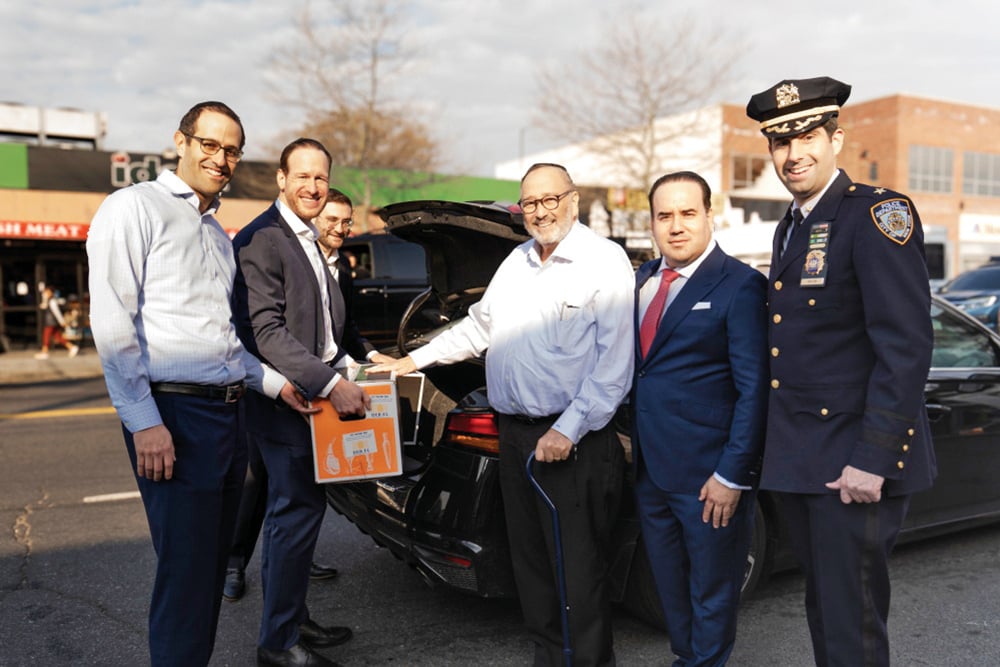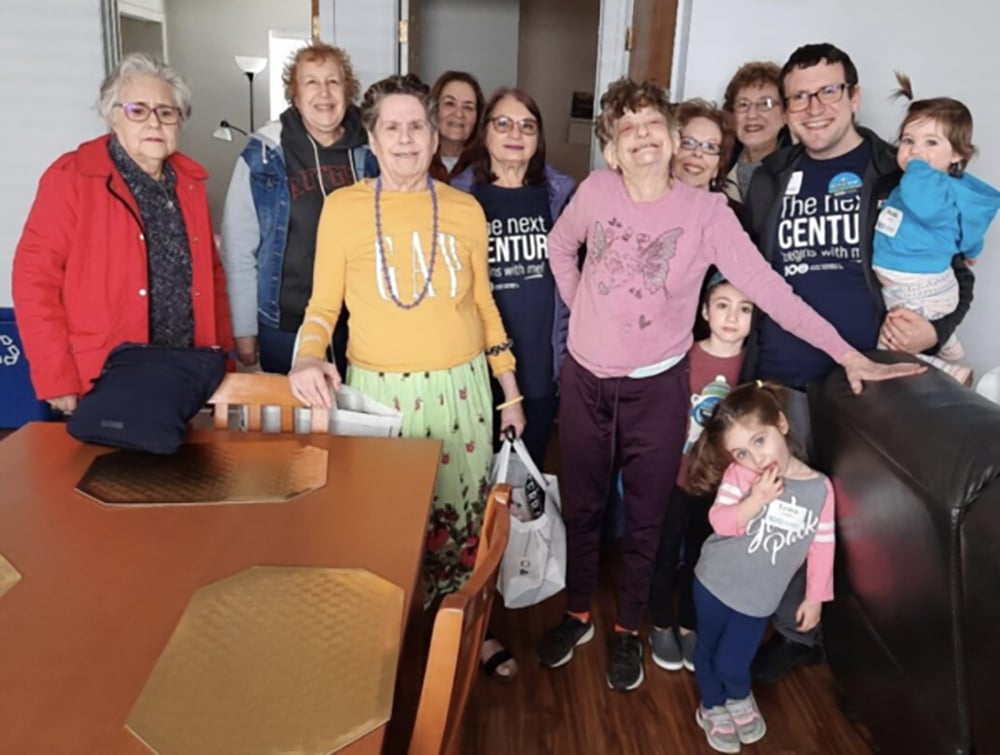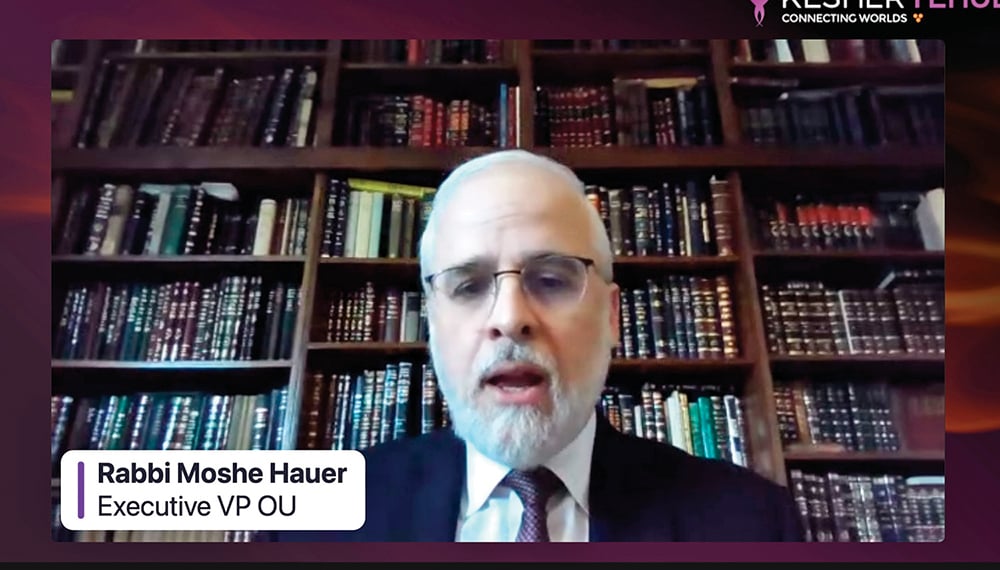
Township officials in Mahwah, at the northern end of Bergen County near the New York border, have ordered the removal of PVC piping that bears an eruv built by the South Monsey Eruv Fund; the fund had been proceeding to this point with explicit permission from the Orange & Rockland (O&R) Utility Company. The removal has been ordered on account of a 1,200-signature petition to the town, which has just over 25,000 residents, whose stated purpose is to discourage Orthodox Jews from moving into Mahwah. Eruvin are ritual enclosures made up of small pipes or virtually invisible wires called lechis, and are used to establish perimeters of towns and villages, allowing Jews to carry items and push strollers or wheelchairs on Shabbat.
The legal council of the South Monsey Eruv Fund is presently meeting with Agudath Israel of America, an organization that was involved in the Tenafly court case titled “Tenafly Eruv Assn. v. the Borough of Tenafly.” The case, which concluded in 2002, established considerable precedent regarding the legality of eruvin. This precedent was tested and upheld more recently in Westhampton in 2015. New Jersey is home to more than 20 eruvin.
The South Monsey Eruv Fund plans to release a statement in the near future, said a person familiar with the situation, who spoke on the condition of anonymity. He also noted that the same O&R poles are rented by others who attach similar piping, including Verizon and Optimum. “The municipalities themselves do not have any jurisdiction over the poles,” he said.
The eruv, to Mahwah residents, represents “the Jews expanding their horizons into new neighborhoods. Their feeling is that this will inevitably lead to big houses, traffic, pollution, higher taxes and more,” the source added. “The reality is, though, that the presence of the eruv on the O&R poles in Mahwah do not necessarily serve as a precursor to the arrival of Orthodox Jews in that neighborhood.
“As is often the case, the route the eruv takes is the most logical one mapped out. If there is a more accessible utility pole many blocks beyond the neighborhoods where Orthodox Jews live, the eruv committee will choose that route as the easiest way to get the job done.”
This particular eruv encloses 26 miles and encapsulates many communities in addition to Mahwah, including Suffern, Airmont and Chestnut Ridge. The Mahwah Jewish community has no known Orthodox synagogues and only one Reform temple, Shir Haverim, and likely does not have local residents who use the eruv on a weekly basis. However, the same eruv can assist people within that 26-mile radius in enabling them to move more freely on Shabbat.
According to an article on VosIzNeias.com, the Mahwah eruv consists of 113 poles, each of which has 22-foot long, 1-inch-wide rubber tubing installed flush with the utility pole. Another 40 poles in Upper Saddle River and 27 in Montvale are currently being outfitted with PVC piping for the eruv.
The same article also notes that Chief James Batelli of the Mahwah Police Department was made aware of the eruv plans in May and worked with coordinators in June to ensure safe installation of the poles and tubing, with a special police detail hired to ensure traffic safety during the installation. According to an unconfirmed report, the Mahwah Police Department billed the South Monsey Eruv Association $2,525.38 for its assistance during the installation.
Mahwah Mayor Bill Laforet, who spoke to The Jewish Link and monsey.com on Wednesday afternoon, expressed his hope that the town will be eventually seen as he views it, as a diverse town with 20 houses of worship and a deep ability to understand one another. “I hope there is a potential for some dialogue to understand the intentions of the eruv. If we could sit down with the makers of the eruv and talk about this, I have faith in our community that we can work through these issues,” he said. He explained that his previous understanding of the eruv was that they constituted signs that “direct you to do something,” and that was unlawful according to the zoning ordinances as he understood them.
The mayor’s statement was prompted by the above-mentioned petition to the town, which states the following: “Rockland Electric, without notification to Mahwah residents, permitted the use of public utility poles in our Township for the attachment of a religious article/symbol called an eruv used by the Hasidic sect. We must demand the removal of these eruvs in order to prevent further illegal incursions into our community.”
The petition is then followed by dozens of supportive comments, almost all of which make use of anti-Semitic slander, suggesting that Jews “turn towns dirty,” “do not assimilate” and “don’t pay taxes.” One comment states: “We do not discriminate here which is why they think it is ok to come here. But there are exceptions to every rule.” These statements clearly show that the motivation of this petition has nothing to do with the technical law and everything to do with the types of people the Mahwah residents associate with eruvin.
Sandy Eller, a freelance reporter on assignment for VosIzNeias.com, covered a Monday night meeting of the “Mahwah Strong” Facebook group, which has reportedly garnered 3,000 members in just six days. In the meeting, community organizer Robert Ferguson stressed the importance of keeping hatred out of the equation and avoiding a “posse mentality.” Chief Batelli, however, confirmed reports that the eruv had been vandalized at four separate points by the following afternoon. He said that Bergen County Sheriff’s Office has been notified that the Mahwah Police Department is treating the vandalism as a bias crime.
Ferguson also singled out Eller in his remarks to the crowd, saying, “[t]ell your friends, we are not against you.” However, she reported that hatred was very much in evidence at the meeting. “It was the most hostile meeting I have ever been to, which is saying a lot considering that I have been to East Ramapo School board meetings,” Eller told The Jewish Link and monsey.com.
“Several people told me I was not welcome during the meeting, and I had cell phone cameras shoved inches away from my face repeatedly as people snapped pictures of both me and my press credentials,” Eller wrote in her article posted Tuesday afternoon.
“A woman who followed me throughout the night, bombarding me with questions and accusations in what appeared to be a deliberate attempt to disrupt my recordings, actually walked me through the parking lot to make sure that I left the premises, while another woman photographed my license plate as I got into my car,” she wrote.
Assemblywoman Holly Schepisi (R-39), whose district includes Mahwah, told The Jewish Link and monsey.com that she was at the “Mahwah Strong” meeting, and while she saw Eller and stated that she had been “welcomed” at the meeting by Ferguson, she did not witness Eller being mistreated in any way. She admitted, however, that a trifecta of events were to blame for the “hysteria” of the current situation. “At the meeting, I urged the leaders of the citizen’s group and the leadership within Mahwah to meet with the eruv organizers and discuss their concerns.”
Comparisons to Tenafly
This is not the first time individuals in New Jersey have sought to discourage a community from building or keeping their eruv. A case with striking similarities arose in Tenafly nearly two decades ago, when the borough ordered that the lechis be removed under Town Ordinance 691, which states the following: “No person shall place any sign or advertisement, or other matter upon any pole, tree, curbstone, sidewalk or elsewhere, in any public street or public place, excepting such as may be authorized by this or any other ordinance of the Borough.” However, it was determined that Tenafly had made exceptions in the past (advertisements for garage sales, lost dog signs and other announcements were not taken down with any significant means of enforcement), and that the signage ruling was being enforced selectively.
Chaim Book, the plaintiff in the Tenafly eruv case (who now lives in Teaneck), argued that the Tenafly eruv dispute was an infringement on his religious freedom. “In Tenafly, we encountered people who openly said they did not want ‘our kind, living in their town,’” Book told The Jewish Link. “They expressed concerns about how the presence of Orthodox Jews would change the nature of the town. They said that if we moved in, Tenafly would become more like Teaneck or, even worse, Brooklyn or Monroe. And they would preface their comments by saying that they were not prejudiced, but…”
Before it was appealed, the original case decided that Tenafly was allowed to prohibit the eruv; previously, the removal had been prevented from enforcement by an emergency injunction. “The Court is convinced that the fundamental reason animating the Borough Council’s decision was its concern that public property should not be permanently allocated to a religious purpose. In making this decision, the Borough Council was not targeting the Orthodox Jews, but was instead targeting permanent religious installations on property to which the public typically does not have a right of access,” read the decision.
However, “[t]he Third Circuit Court of Appeals held that the Town of Tenafly acted in a discriminatory manner when it selectively chose to enforce their utility pole ordinance to prevent the Jewish community from using the poles for an eruv,” said Book. “That meant that Tenafly did not have any objection to signs posted on utility poles for lost dogs, or Sunday church events or garage sales, but if the poles were used for a lechi (which is virtually invisible), then it was a violation of the ordinance. This decision was further appealed to the U.S. Supreme Court, which declined to hear a further appeal, which for practical purposes means that the Third Circuit ruling stands as law,” said Book.
Tenafly’s objection to the establishment of a virtually invisible eruv was determined to be a violation of the First Amendment to the Constitution, which allows the free exercise of religion. The residents of Tenafly endured a six-year battle that they ultimately lost, and Tenafly was forced to pay the eruv association’s legal fees.
At press time, a Thursday evening meeting of the Mahwah Town Council was planned, with Council President Rob Hermansen sharing that the 7:30 PM meeting was open to the public.
By Elizabeth Kratz and M.C. Millman. Dov Greenwood and Sara Schapiro contributed to this article.













